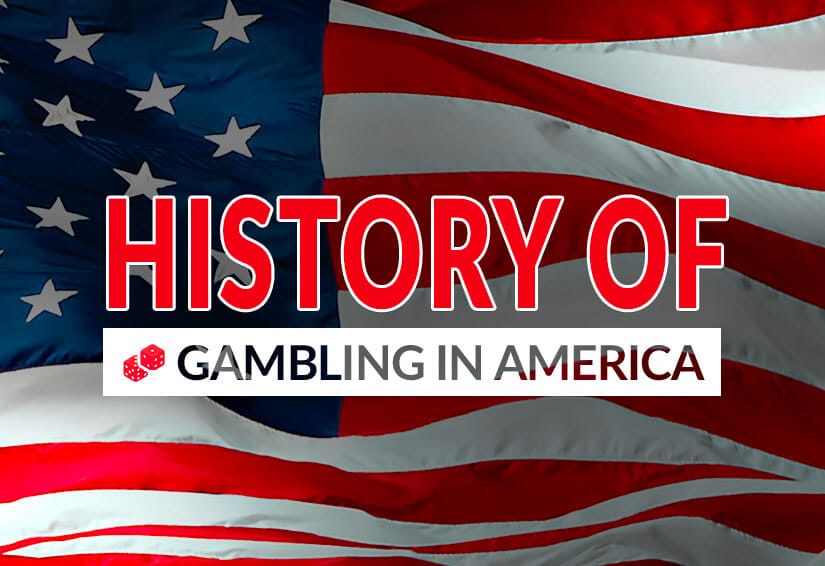The United States has a well-documented history of gambling that predates the arrival of The Mayflower and still continues to evolve. Pre-colonial gaming was very common and gambling in America has been going on for centuries, practiced by both the natives and the European. Today, we will trace the history of gambling in the United States, from the games to the laws that have come into existences throughout the years. So, what is American gambling and how has it come to be?
Pre-colonial Times in American Gambling
If you are a bit of a word buff such as ourselves, then you would be pleased to find out that the word “hubbub” came from the Native Americans who played a game by the same name which could best be liken to modern-day Craps. In Hubbub, you would play with a bunch of colored sticks and the winner would be determined by a combination of the colors after all players have done throwing the sticks. More games such as Quinze were also played at the time.
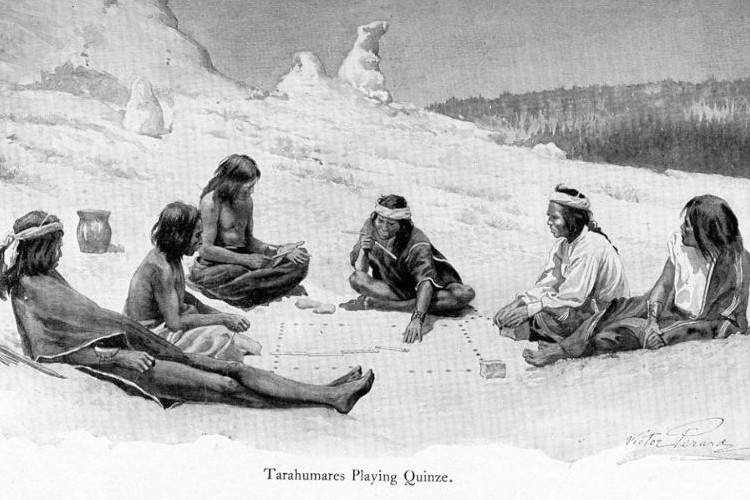
The natives were quite keen on the games, among others, although they didn’t consider it a sort of a moral downfall or necessarily a way to denigrate one’s self. Plus, the natives didn’t actually have the concept of property introduced to them until the Europeans started running inroads into the North American coast line.
The Europeans Reach North American Shores: Gambling Follows
While the natives were quite happy to throw sticks and divvy up whatever it was they found valuable, and often even playing without rewards, Europeans were of a more avaricious turn of mind. Winning by gambling necessarily meant obtaining the other person’s wealth or stake, come what may.
This prompted some heated disputed between colonists, which in turn, led to a ban on gambling in the late 1600s. By the 1700s, the Southern Colonies had decided that gambling was indeed permissible and it was the sort of thing that nobility could practice freely and without sanction from a government.
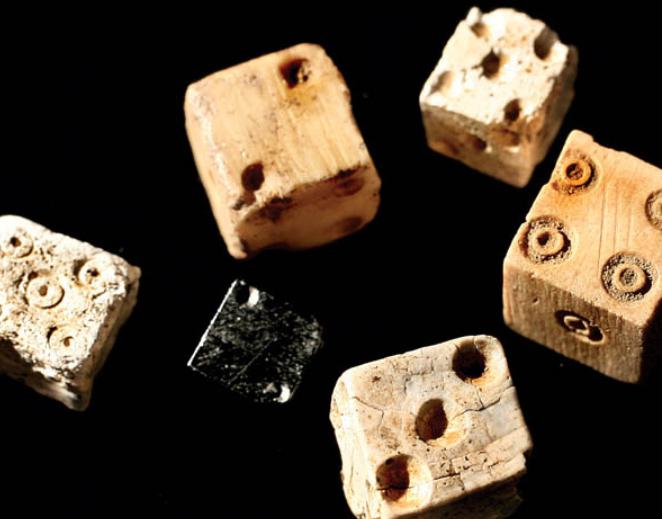
In fact, much of today’s casino games came from the French nobles who knew no better way to pass the time other than playing the early versions of Blackjack (Vingt-et-Un), Baccarat, and of course Roulette. It wasn’t until Blackjack was adopted en masse in the United States that the French name was replaced with the anglicized version, though.
And so, the 1700s arrived and they brought us quite a bit of betting activities with the nobles not sparing much effort when it came to having a good time. Then, towards the later half of the century, the colonies had an idea – why not give everyone a chance to win a big pile of cash while using the proceedings to fund public initiatives? This is where the lotteries make their historical entry.
Play the Lottery: Do Your Civic Duty
It was the 1770s, and the colonies have decided to give lotteries a go. The idea, as we explained was all part of a plan to boost the public coffers and it worked. Colonialists from all 12 territories at the time started playing the lottery – it was, after all, their civic duty to do so.
While lotteries have always been exempted from the common stigma attached to gambling, the same couldn’t be said about the majority of other segments that became less gentlemanly with time. And so, around the 1800s, people in the newly-formed United States of America decided that they have had enough gambling and ousted the activities putting them under prohibition.
Some fortresses remained where people would continue playing, such as Mississippi, but the locals weren’t too fond and civil unrest and self-styled daredevils pushed any lingering gamblers further out in the mainland. To top it all off, the integrity of lotteries was put under question, with the incidence of lottery frauds intensifying.
The Rise of the Casinos in the 20th Century
Gambling has never really disappeared in America. For the most part, it quieted down in one place and flared-up in another. The California gold rush made people rich and it made them stupid. Excavating gold and having too much on one’s hand prompted many people to test the faiths and return to gambling. This didn’t last too long because in the 1950s, public lynching of gamblers became the norm, and advertising your proclivity for card and dice games wasn’t exactly smart at that point.
It took the United States about half a century before the activity began to emerge again, but this time at the appropriate venues. Casinos began to emerge ran by gangsters who were keen on banking on The Prohibition Period.
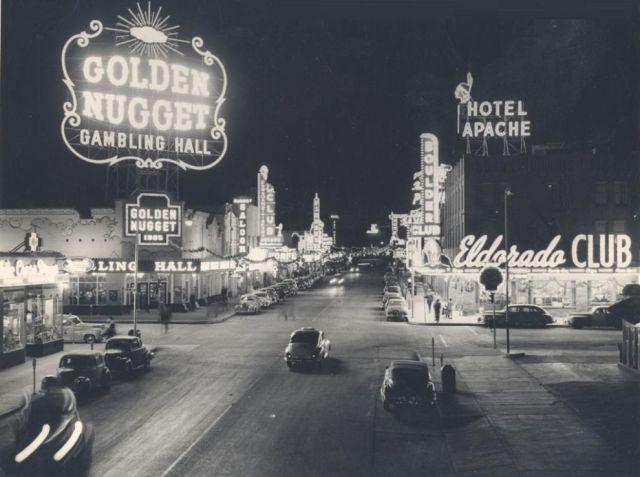
If authorities thought that they could keep people away from gambling and alcohol, organized crime had a completely different idea about the activity and so casinos came to be. Whether it was a speakeasy or a backroom gambling den, gaming venues began to emerge.
Gambling soared during The Great Depression of 1929. Meanwhile, casinos began to open doors around important infrastructure project, preceding the modern casino ecosystem which will see properties perch on state borders so they can attract the largest crowds possible.
The only drawback at the time was that many operators were still illegal, which prompted the government to address the problem by collecting back date tax on such rogue players.
Galveston, one of the most famous destinations at the time, was owned by the Maceos, who attracted quite the crowd, having some of the best artists of the time perform at the club, including Frank Sinatra, Duke Ellington, Jack Benny, George Burns, Groucho Marx, Bob Hope and others.
The Galveston wasn’t the only property to be run by using the financial backing of hot money, though. Mobsters built modern-day America’s gambling landscape offering little chance to any competition to thrive. The Nugget, Eldorado and other property appeared as early as the 1930s.
Poker and Its Place Under the U.S. Gambling Sunday
Poker has been practiced since colonial times, but the game has never really enjoyed the fame it does today. Even though many states still turn a blind eye on poker, things are improving. The first big development in the poker world came in 1970, when the inaugural World Series of Poke (WSOP) was hosted.
Poker started to seep through in mainstream culture, with Star Trek: The Next Generation showing characters play in at least 10 episodes. Another big development followed in 1988 when the Congress passed the Indian Gaming Regulatory Act, allowing tribes to operate card rooms.
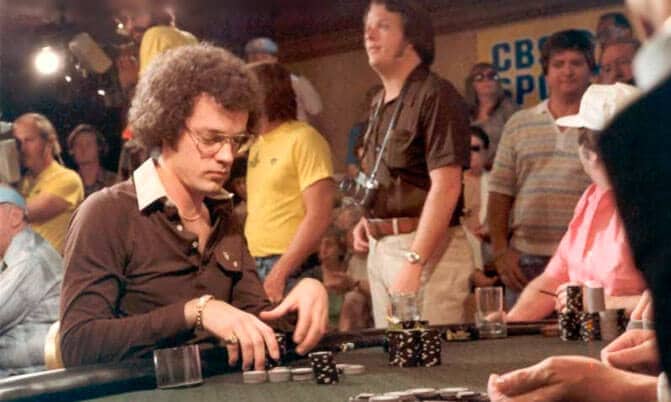
The game continued to gain momentum throughout the 1990s and in the 2000s, but even after all efforts invested, poke is really only popular in Nevada and New Jersey. Casual players do drop by land-based card rooms, but the majority of people stick to online options.
This is particularly true in non-regulated states where people turn to offshore gaming opportunities instead. The passing of UIEGA in 2006 made it even more difficult for established brands, such as PokerStars and partypoker to try and convince lawmakers to give the go-ahead and allow players to enjoy a card game that is for all intents and purposes a game of skill.
Today, poker is legal in Delaware, Nevada, New Jersey and Pennsylvania in its online form, and elsewhere, poker can be played only at land-based venues.
Step Into the Light: Tribal Casinos and Modern Business
With the FBI becoming a force to be reckoned with, bootlegging gone and Mafiosi finding themselves surrounded by law enforcement, the old world order had to go. In the 1980s, casinos all sought to establish legal businesses and become conscientious tax payers.
At around the same time, tribal operators began to emerge as alternatives to most commercial casinos. In places like Florida and California, the tribes have had exclusive rights over all gambling segments whereas commercial casinos, card rooms, and betting venues, all had to respect the supremacy of the tribal casinos. South Park even ran an episode “Red Man’s Greed,” poking fun at the concept.
Yet, tribal operators have been some of the most conscientious employers in the United States offering great employment opportunities. Admittedly, the tribes have been reluctant to admit any private brand and give commercial casinos a chance to grow across the United States, which could perhaps be held against them. Then again, who openly invites competitors when they can bar them from an entry in their main market?
New Jersey and the Age of the Internet in Gambling
New Jersey is an important name in the gambling landscape. For starters, the state managed to introduce the first fully-regulated lottery and inspired others, including in places such as Illinois, New York and New Hampshire.
Plus, New Jersey also made it possible for sports betting to exist in the United States today. The Garden State fought for online gambling, having spearheaded the offensive against PASPA.
Recently, the U.S. Department of Justice introduced a new Wire Act Opinion which would block all cross-state online gambling, but the move was faced with opposition from states and the U.S. Congress.
Still, online gambling in the United States remains a felony in some states, although today, you won’t be jailed for participating in online gambling in states where the activity is prohibited. If you do decide to run such activities, though, you could face federal charges.


